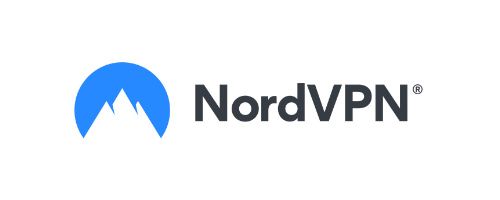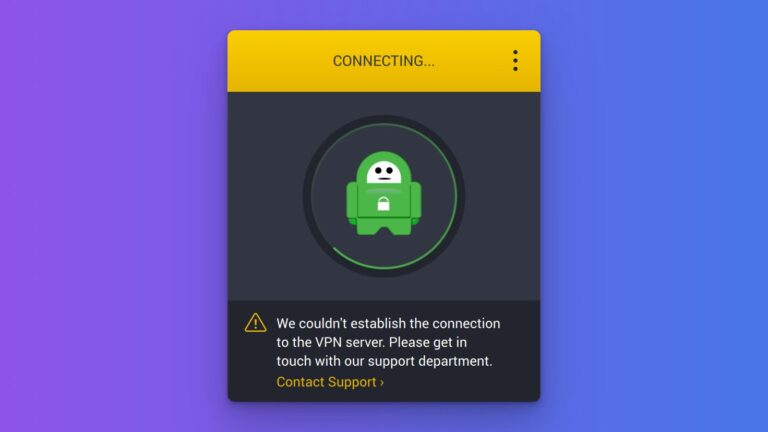Nowadays, our online activity is constantly monitored by various entities, from advertisers to malicious actors, and it’s more important than ever to make sure that we have the right privacy tools when browsing the web.
When it comes to protecting your personal information, conventional browsers may not be sufficient. That’s where privacy protection software for browsing comes into play, offering a more secure way to navigate the internet without compromising your data.
These tools range from specialized browsers to extensions that promise enhanced security features, each designed to give you control over your digital footprint.
In this article, we’re going to take a look at browsers, extensions and various tools that will help you enhance your online privacy when you browse the internet.
👋 This post contains affiliate links, and I may earn a commission at no extra cost to you.

Special NordVPN Offer!
Starting at just $2.99/month!
Get VPN protection from NordVPN, one of the most reliable VPN companies in the world!
Key Takeaways
- Protecting your privacy online requires more than just the default settings of standard browsers.
- A variety of tools, including privacy-focused browsers and extensions, can significantly enhance online security.
- Understanding and comparing the security features of these tools helps in making better decisions for your data privacy.
Understanding Privacy and Security Fundamentals
Online privacy is vital because it safeguards your personal information from unwanted access. When your privacy is compromised, it can lead to identity theft, financial fraud, and an overall lack of control over your personal data.
Defining Browser Security
Browser security refers to the measures implemented to protect your information from various threats like malware and phishing attacks. A secure browser actively works to plug vulnerabilities and reduce the risk of such threats.
How Browsers Impact Privacy
Browsers are a primary gateway to the internet and play a pivotal role in maintaining your privacy and security. They manage cookies, control tracking protection, and dictate what data is collected and possibly shared with third parties.
Encryption and Secure Connections
Encryption is a security must-have. It scrambles data, making it unreadable to anyone without the correct key. Always look for HTTPS in the URL, which signifies a secure, encrypted connection to the website.
Anonymity and Avoidance of Tracking
To maintain your anonymity, utilize browsers that offer features to reduce tracking cookies and browser fingerprinting. Services such as a VPN can further hide your browsing activity, preventing the collection of your browsing data.
Understanding Browser Data Collection
Your browser can collect various types of data such as your cookies, browser history, and tracking data. Reviewing the privacy policy of your browser helps you understand how this user data is handled and if it is shared.
Comparative Analysis of Privacy Browsers

Special NordVPN Offer!
Starting at just $2.99/month!
Get VPN protection from NordVPN, one of the most reliable VPN companies in the world!
When exploring web browsers, you’ll find that privacy comes in different shapes and sizes. Let’s dissect and compare privacy-centric browsers and how they stack up against mainstream options.
Mainstream Browsers vs. Privacy-Focused Browsers

Mainstream Browsers: Typically, browsers like Google Chrome and Safari prioritize user-friendliness with integration into their respective ecosystems. However, they may collect more personal data to enhance the user experience. Mozilla Firefox, on the other hand, strikes a balance by offering robust privacy features while still retaining a mainstream user base.
Privacy-Focused Browsers: Browsers like Brave or the Tor browser put your privacy at the forefront, often integrating enhanced tracking protection, ad blocking, and even access to the Tor network for anonymity.
Strengths and Limitations of Incognito Mode
Incognito Mode: This feature, found in browsers including Chrome and Firefox, offers some degree of privacy by not saving your browsing history or cookies after you close the window. However, it doesn’t make you invisible. Websites, your internet service provider, and even employers can still track your activities, and it’s advisable to use this feature with a reliable VPN.
Evaluating Built-In Privacy Features
Enhanced Tracking Protection: Available in Firefox, this feature blocks trackers and scripts that can follow you across websites. Meanwhile, privacy-centric Brave includes additional layers of security, like fingerprinting protection, making it more difficult for ads to monitor your online behavior.
Ad Blocking: While mainstream browsers may require third-party extensions for ad blocking, Brave has built this feature into the browser, offering seamless protection from intrusive ads.
Analysis of Open-Source Browsers
Open-Source: Browsers like Firefox, LibreWolf, and Waterfox advocate for transparency with their open-source nature. By allowing you to inspect their code, these browsers provide an additional level of trust and security, ensuring there are no hidden agendas concerning your privacy.
Private Browsing Tools and Extensions

Special NordVPN Offer!
Starting at just $2.99/month!
Get VPN protection from NordVPN, one of the most reliable VPN companies in the world!
When you’re online, safeguarding your privacy is crucial. It’s important to have the right tools for privacy protection. Whether you’re concerned about intrusive ads or wanting to keep your browsing habits to yourself, these tools will help enhance your digital security and anonymity.
VPN Services for Enhanced Privacy
VPN (Virtual Private Network) services are your go-to for shielding your browsing activities. By encrypting your connection, a VPN secures your data and masks your IP address, making it difficult for others to track you across the web. These services reroute your traffic through their own servers, providing an added layer of security, especially when you’re using public Wi-Fi networks.
Recommended VPNs:
- NordVPN – Offers a 1-click Quick Connect feature that instantly connects you to the best server.
- Surfshark – Known for its ability to work in regions or countries that are not VPN-friendly.
- CyberGhost – Recognized as the Best VPN for Mac, offering optimized services for macOS users.
- PIA (Private Internet Access) – Noted for its advanced security features and high customizability.
- Windscribe – Allows users to pick and choose the features they want via a build-a-plan system.
- ExpressVPN – Known for its diskless servers, running everything in RAM for enhanced security.
Popular Ad Blockers and Their Impact
Ad blockers significantly reduce the number of intrusive and potentially malicious ads like banners and pop-ups. By filtering out unwanted ads, ad-blocking tools can protect you from targeted advertising and security threats such as crypto miners embedded in ads. They often block social media trackers as well, helping you maintain a level of privacy while browsing.
Popular Ad Blockers:
- Adblock Plus – popular for its customizable filters
- uBlock Origin – valued for its lightweight performance
Enhancing Anonymity with Tor Network
The Tor network offers a high level of anonymity by directing your traffic through multiple servers, shedding bits of your information along the way. This method, known as ‘onion routing,’ makes it nearly impossible to trace activity back to you. When using the Tor network, you can browse without leaving a trail, even venturing into the dark web securely with Tor’s built-in protections. Remember to enable Tor mode in your browser for maximum privacy.
Tor-based Solutions:
- Tor Browser – the easiest way to start using Tor
- Brave Browser’s Tor mode – integrates Tor’s anonymity into a user-friendly browser
Password Managers for Secure Authentication
To keep your online accounts secure, a password manager is essential. It creates and stores complex passwords so you won’t compromise your security with weak or repeated passwords. Password managers like iCloud Keychain can also suggest strong passwords and store them with encryption, ensuring you can safely access your accounts across devices.
Trusted Password Managers:
Strategies for Protecting User Data
To safeguard your online privacy, it’s essential to implement robust data protection strategies. This includes managing how your personal data is shared through network connections and the tools you use for browsing the web.
Securing Network Connections
Always use HTTPS: When browsing, ensure that the websites you visit are secured with HTTPS. This encrypts the data transmitted between your browser and the website, protecting your information from eavesdroppers on the network. A secure browser will often alert you if HTTPS isn’t available on a site.
Effective Use of Tracking Protection Tools
Employ tracker-blocking: Utilize tracking protection tools to block trackers from following your online activity. Anti-tracking extensions or privacy features in browsers can prevent cross-site tracking cookies from collecting your data. Tools like the EFF’s Cover Your Tracks tool can test how well your browser is protecting you from tracking.
Managing Cookies and Browser History
Cookies management: Regularly manage your cookies to prevent tracking cookies from profiling your browsing habits. This means routinely clearing them out and adjusting your browser’s privacy settings to limit tracking cookies.
Control browser history: Keep a check on your browser history. Some browsers offer features that automatically delete your history after each session, which can stop potential intruders from retracing your online steps.
Preventing Browser Fingerprinting
Fingerprinting protection: To avoid browser fingerprinting, use anti-fingerprinting techniques such as disabling JavaScript or using browsers and extensions dedicated to protecting against fingerprinting. This makes your browser look as generic as possible, thus avoiding identification through unique configurations.
Comparing Security Features of Various Browsers

Special NordVPN Offer!
Starting at just $2.99/month!
Get VPN protection from NordVPN, one of the most reliable VPN companies in the world!
When choosing a browser for privacy, it’s essential to consider the diverse security features they offer. They range from tracking protection and ad-blocking to encryption and data syncing choices. Here’s how different browsers prioritize your online privacy:
Chrome’s Approach to Privacy
Google Chrome provides several privacy settings, such as blocking third-party cookies by default and offering an incognito mode. You can also customize Chrome’s privacy options to better control your data.
Mozilla Firefox’s Privacy Solutions
Mozilla Firefox emphasizes user privacy with Enhanced Tracking Protection on by default and support for various privacy add-ons. Firefox Focus takes it further with minimal data retention on mobile.
Safari and Apple’s Privacy Ecosystem
Apple’s Safari browser integrates with the company’s privacy-focused ecosystem, using iCloud Keychain for secure password management and offering a range of site tracking prevention features on both Mac and iOS devices.
Opera’s Built-In VPN and Security
Opera offers a free built-in VPN and ad blocker, enhancing your online anonymity and protecting against tracking. Its security settings are straightforward to navigate, ensuring a protected browsing environment.
Advantages of Using the Brave Browser
The Brave Browser stands out with its aggressive ad and tracker blocking. Moreover, it provides an opportunity to earn cryptocurrency for viewing privacy-respecting ads, making Brave an appealing choice for privacy and innovation enthusiasts.
The Role of Chromium-Based Browsers
Many secure browsers, such as Microsoft Edge and Vivaldi, are built on the Chromium framework. They benefit from Chromium’s frequent updates and extra security, while often adding their own privacy tools.
Specialized Browsers for Maximal Privacy
Tor Browser and Epic Privacy Browser focus intensely on privacy, with features like routing traffic through multiple servers and blocking fingerprinting respectively, offering perhaps the best secure browsers for those who prioritize anonymity.
Linux Browsers With Strong Privacy Controls
For Linux users, browsers like LibreWolf and Waterfox present strong privacy controls out-of-the-box. They usually don’t track your activities and offer additional protections against intrusive scripts.
Browsers With Frequent Updates and Extra Security
Browsers such as Avast Secure Browser promise reliable privacy protection software for browsing and security by rolling out frequent updates and providing additional layers of protection, like bank mode for safe online shopping.
Frequently Asked Questions
Recommended VPNs:
- NordVPN – Offers a 1-click Quick Connect feature that instantly connects you to the best server.
- Surfshark – Known for its ability to work in regions or countries that are not VPN-friendly.
- CyberGhost – Recognized as the Best VPN for Mac, offering optimized services for macOS users.
- PIA (Private Internet Access) – Noted for its advanced security features and high customizability.
- Windscribe – Allows users to pick and choose the features they want via a build-a-plan system.
- ExpressVPN – Known for its diskless servers, running everything in RAM for enhanced security.
Navigating the landscape of online privacy can be daunting, but with the right tools, you can browse the internet with confidence. Below, you’ll find answers to some common questions about privacy protection services for online browsing.
What are the top-rated privacy protection services for online browsing?
If you’re looking for robust privacy protection, consider using specialized browsers with built-in security features such as Brave or tools like Mozilla Firefox for its strong tracking protection.
Can you recommend some useful privacy tools for enhancing online security?
Yes, implementing extensions like ad-blockers and script blockers can significantly enhance your online privacy. Tools such as VPNs and browser extensions provided by companies like Avast Secure Browser can also be very effective.
How can I ensure my browsing privacy is secured on my iPhone?
To secure your iPhone browsing, use privacy-centric browsers and enable settings that limit tracking. DuckDuckGo’s mobile browser is noted for privacy, and maintaining regular updates to your iOS can also keep your privacy safeguards strong.
Are there any reputable free privacy software options for safe browsing?
Certainly, there are free options available such as DuckDuckGo, which offers a privacy-focused search engine and browser extension, and browsers like Brave that come with several built-in privacy features.
What is the best privacy app to use for Android devices?
For Android devices, consider apps that focus on privacy like DuckDuckGo, which offers robust privacy protection and is tailored for mobile use.
Which private browser should I choose for the most secure experience on my PC?
When it comes to PC browsing, Brave and Firefox are commonly recommended for their comprehensive security measures. Consider each browser’s specific features and choose one that aligns best with your privacy concerns and browsing habits.





